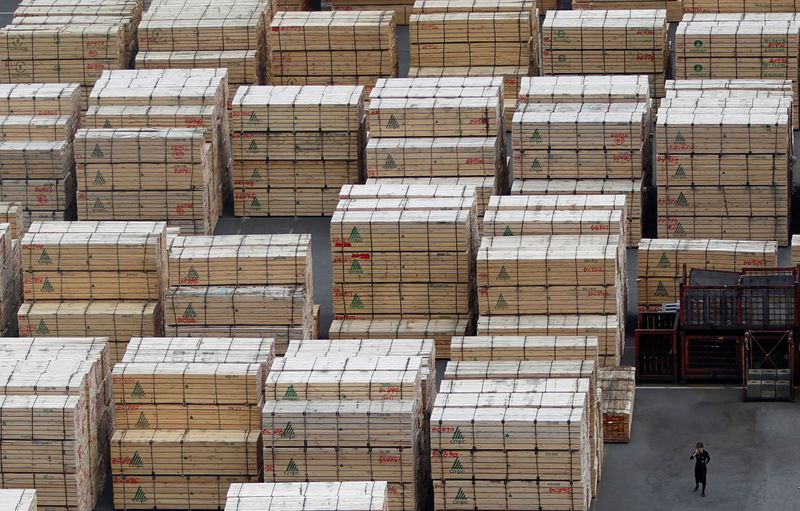By Leika Kihara
TOKYO (Reuters) - Japanese wholesale prices fell in June at a slower pace after sinking at the fastest rate in four years in May, as a rebound in Chinese demand lifted commodity costs and eased some of the deflationary pressure caused by the coronavirus pandemic.
But wholesale prices fell for an increasing number of goods dependent on domestic demand, such as construction materials and food products, suggesting the damage to Japan's economy from the health crisis is broadening.
The corporate goods price index (CGPI), which measures the price companies charge each other for their goods and services, fell 1.6% in June from a year earlier, Bank of Japan data showed on Friday.
The drop was smaller than a median market forecast for a 1.9% fall and less than the 2.8% plunge in May, which was the biggest drop since October 2016.
The drop in oil and nonferrous metal prices eased in June, reflecting a pick-up in demand as China and many advanced economies lifted lockdowns, the data showed.
But the number of CGPI components that saw prices fall exceeded those that experienced price gains by 124 in June, up from 92 in May, reflecting sluggish domestic demand.
"The data shows that weakness in domestic demand caused by the pandemic is weighing on prices," Ichiro Muto, head of the BOJ's price statistics division, told reporters.
"Economic activity hasn't normalised completely, so it won't be surprising if weak demand keeps pressure on wholesale prices for some time," he said.
Japan's economy slipped into recession and is set to suffer a more than 20% annualised contraction in April-June, after the government in April urged citizens to stay home and businesses to close.

Although the state of emergency was lifted in late May, analysts expect the economy to recover only moderately in the face of the pandemic's sweeping global impact.